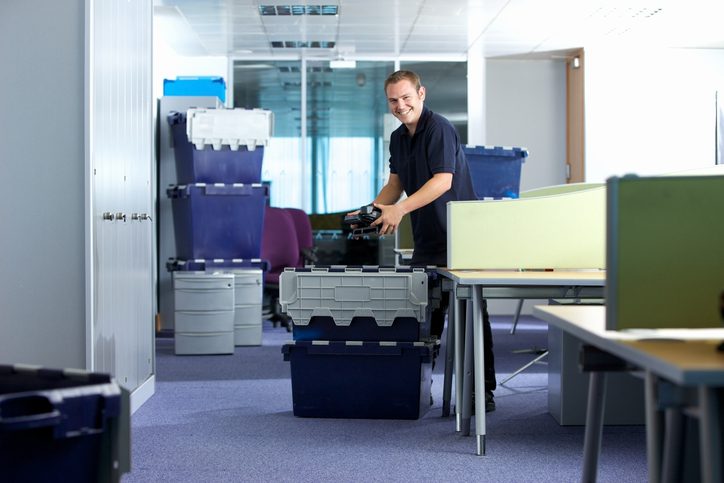
It doesn’t matter whether you are a 10-person team or a Fortune 500 conglomerate, relocating your office is going to take some planning and forethought. The last thing you want is to be forced to close up shop for an extended period, stalling your business due to unexpected issues.
Moving your office should signal growth to your client base; not chaos. So how can you take your business to the next level – and the next address? The key to a successful transition is preparation. You have a marketing strategy … a client care strategy … and a business building strategy … so why not a moving strategy?
Creating a Plan
It is never too early to start planning your big move. This means devising a plan for individual departments as well as the business as a whole. Remember, time is of the essence when it comes to moving an office. The faster you can get your new digs up and running, the faster your team can get back to work.
The first thing you need to do is to appoint a moving manager. This is the point man designated with coordinating the entire office relocation. This includes everything from packing up all necessary files and ordering new stationery to make sure every department has what they need to work on the go for a few days.
More than just a packing or moving expert, the relocation manager knows exactly what is necessary to get your office from point A to Point B with as little downtime as possible. Once you have a moving manager in place, it is time to begin assigning teams to handle individual aspects of the move.
Hire Professional Movers
Not every commercial moving company is equipped to handle large office relocations. Be sure to choose a company that understands the nuances of relocating a business. Remember, they will not be simply moving your desks and chairs from one place to another; they will also be responsible for securing sensitive files and making sure everything makes it to the new location safely.
Equip the IT Department Properly
One of the trickiest parts of moving an office is disconnecting and reconnecting quickly and efficiently. This can only be accomplished if your IT department has what they need to succeed. Here are some tips to create a hassle-free environment for them to work in:
- Give the IT department at least three months to plan the transfer. This will include developing a step-by-step outline for the move.
- Evaluate the new space well in advance of the move
- Order upgraded equipment weeks before moving day to ensure everything has arrived
- Coordinate all installations for several days before the actual office move
- Make sure that all cabling is installed and tested prior to moving day
- Move the IT department first. This will allow them to work to get the rest of the office up and running while boxes are still be brought to the new site.
- Install and test all work stations prior to the first scheduled workday in the new office.
Relocating an office can be exciting, but that doesn’t mean the process is always easy, or that it will run smoothly. A lot of things can go wrong if you don’t plan properly, so be sure to follow the guidelines here to ensure that your staff isn’t stressed and your clients don’t feel abandoned during the move. When handled properly, you should be able to move the entire office and have everyone back to work within a day or two.
Moving soon? Contact {company} to arrange a complimentary consultation on how we can assist in the technology side of your office move. Call {phone} or drop us an email.






.png?width=288&height=123&name=Valeo-Logo-White%20(1).png)